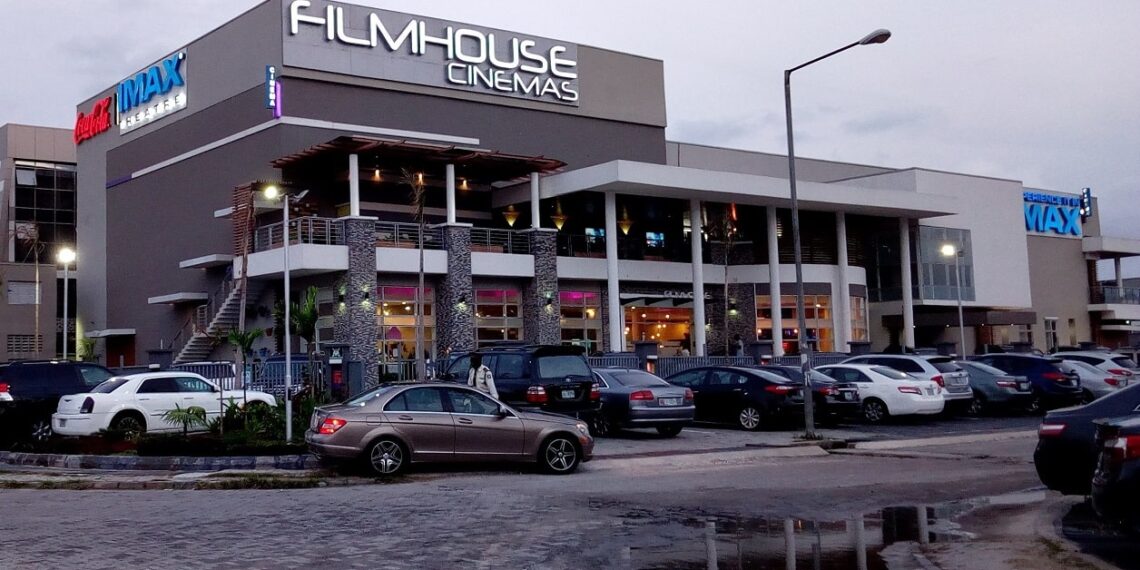...To get all news updates, Join our WhatsApp Group (Click Here)
Also Join our WhatsApp Channel (Click Here)
Story Highlight
* Shareholders of Filmhouse Holdings are in court over a planned sale of a 58.1% stake to Trivos Film and Media for N4.9 billion.
* The petition was filed by Cerrerera Investment Services, which alleges that Cape Media Limited, the majority shareholder, has not adequately considered better offers from other interested buyers.
* Responses from Filmhouse and Cape deny any clandestine agreements….
Shareholders of Filmhouse Holding Limited, a media company involved in movie cinema operations and film distribution, are in court to contest an alleged plan to sell 37,765,000 ordinary shares—representing a 58.1% stake in the company—to Trivos Film and Media Limited for N4,917,843,707.
The legal battle stems from a petition filed by an aggrieved shareholder, Cerrerera Investment Services Limited, which alleges that a majority shareholder (Cape Media Limited) has made a purported decision to sell all of its 37,765,000 ordinary shares (58.1%) to Trivos, a media company registered in Nigeria.
The petition alleges that the consideration is based on a diminished valuation of Filmhouse, which will prejudice both its interests and those of other minority shareholders.
Contention Against Planned Equity Sale
In its petition marked;
FHC/ABJ/PET/18/2024 before the Federal High Court in Abuja, Cerrerera Investment Services Limited’s lawyer, O. Adenaike Esq., sued Filmhouse Holding Limited, Cape Media Limited (Mauritius), Trivos Film and Media Limited, six directors, and the Corporate Affairs Commission(CAC), seeking an order to restrain the sale of the 58.1% shareholding of Cape in Filmhouse.
According to court documents, Filmhouse has a total of 65,000,000 ordinary shares as its minimum issued share capital.
Of these, 37,765,000 ordinary shares, constituting 58.1%, belong to Cape, while Trivos holds 17% of Filmhouse’s shareholding, amounting to 11,050,000 ordinary shares.
The petitioner’s Chief Operating Officer, Rajiv Mekkat, stated in his affidavit that his company, which owns 1,699,425 ordinary shares (2.1% of the minimum issued share capital of Filmhouse), stands to be prejudiced by this development.
Mekkat further indicated that Cape Media recently expressed its intention to sell its 58.1% shareholding in Filmhouse through a private equity sale to a willing buyer.
According to him, two corporate entities—Logical Pictures and Canury West Africa Limited (CWAL)—expressed interest in acquiring Cape’s shares via letters of intent and binding offer terms. Logical Pictures reportedly offered to pay 58% of $15,000,000(which it believed was the appropriate valuation of Filmhouse in 2023), along with an additional management package of $ 3,000,000.
CWAL offered N6 billion (later revised to N8.5 billion) as consideration for acquiring Cape’s stake in Filmhouse, but these offers were allegedly not considered by Cape, according to the petitioner.
Mekkat explained that while Cape failed to positively consider the offers made by earlier interested buyers, it was recently discovered that Cape had a “clandestine agreement” to sell its 58.1% stake to Trivos for a consideration that he believes represents a significant destruction of Filmhouse’s value, consequently unfairly prejudicing the interests of the petitioner as a member of the media industry.
The second respondent (Cape), by a yet-to-be-executed Share Sale and Purchase Agreement, has agreed to sell its 58.1% shareholding in Filmhouse to Trivos for a significantly reduced consideration of N4,917,843,707, compared to the N8,500,000,000 offer from CWAL and the N6,000,000,000 offer from Logical Pictures.”
“The agreed consideration for the sale of the second respondent’s 58.1% shareholding to the third respondent was based on a significant reduction of the existing valuation of the first respondent,” Mekkat stated.
He alleged that the directors representing the interests of Cape and Trivos, being fully aware of the proposed sale of shares, failed to fulfill their obligations to Filmhouse by not taking steps to prevent actions that would adversely affect the company’s existence.
He claimed that the petitioner’s long-term investment and those of other minority shareholders in Filmhouse would be unfairly prejudiced if the sale between Cape and Trivos was not restrained.
The petitioner has reason to believe that it and other minority shareholders of Filmhouse might be compelled to accept unfavorable terms as Trivos seeks to take control of Filmhouse.”
“The petitioner is further concerned that if it is forced to comply with the provisions of the Shareholder Agreement, which is binding on it, it would have to sell its shares and long-term investment in Filmhouse at an unacceptably low valuation,” he stated in his motion dated June 14, 2024.
Reactions from Filmhouse, Cape, and Trivos
In their affidavit, Hosea Udoh, a litigation executive, responded that Filmhouse, being a company, does not own shares in itself; rather, its shares are owned and held by different shareholders, each with full proprietary rights over their respective shares.
He stated that the petitioner’s shares in Filmhouse are 1,699,425 ordinary shares, and no other shareholder can tamper with or appropriate these shares unless the petitioner voluntarily sells them.
He emphasized that the power to sell shares in Filmhouse resides with the individual shareholders as their personal property.
He acknowledged that Cape recently indicated its intention to sell its shareholding in Filmhouse; however, he stated that this intention never materialized, as Cape has not sold its shares and, to the best of the respondents’ knowledge, is no longer in the process of selling its shareholding in Filmhouse.
Contrary to paragraph 19 of the petitioner’s affidavit, the respondents are not aware of any clandestine agreement by the second respondent to sell its shares to the third defendant.”
“For clarity, it is completely false that Trivos has agreed to purchase the shares of Cape,” he asserted.
Udoh contradicted the petitioner, arguing that the unexecuted Share Sale and Purchase Agreement supposedly prepared between Cape and Trivos is merely a draft document that does not indicate a binding contractual agreement.
Upon careful reading of the unexecuted Share Sale and Purchase Agreement between Cape and Trivos, the amount of N4,917,843,707 proposed as the purchase price for Cape’s shares, assuming it is true, does not expressly or impliedly represent a valuation of Filmhouse,” Udoh stressed.
The litigation officer argued that the petitioner, not being a party to the Shareholders Agreement, is not entitled to rely on its provisions regarding its claims against the respondents.
He accused the petitioner of attempting to mislead the court by presenting unfounded claims and urged Justice Inyang Ekwo to dismiss the motion.
We learned that the court has scheduled a hearing for November 14, 2024, to address the legal team’s arguments regarding the shares dispute.
What You Should Know
Filmhouse Holding Limited is involved in the entertainment industry, particularly in movie distribution and cinema operations.
Filmhouse was established in 2012 by Kenechukwu Mkparu and co-founders Moses Babatope and Kene Okwuosa to address gaps in the cinema market.
The Filmhouse Group and FilmOne Entertainment have been instrumental in the production and executive production of over 40 of Nollywood’s most notable titles, including successful projects like “Wedding Party” (grossing N452million) and Funke Akindele’s “A Tribe Called Judah” (earning N1.4 billion), among others.
NAIRAMETRICS
You can get every of our news as soon as they drop on WhatsApp ...To get all news updates, Join our WhatsApp Group (Click Here)
Also Join our WhatsApp Channel (Click Here)

















